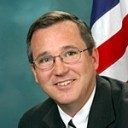
Have you ever wondered why it was that for a couple of hundred years before the Founding of the United States, and for nearly two hundred years after the Founding of the United States the Bible was permitted, even encouraged to be taught in America’s schools?
I think we all know the answer: parents and educators understood what the American Founders understood, that a true education was not just about developing smarts, talents, and skills that enable graduates to make a living — as important as that was and is — but about developing the moral wherewithal to apply these same smarts, talents, and skills in ways that bless rather than curse themselves, their families, their communities, and their nation.
And surely it was because most parents loved their kids, right? And surely most of the locals wanted safe communities, right? And, as to the role of schools in preparing young people for the duties of citizenship, surely among those who had already obtained an education, both parents and teachers, or among those who had any involvement in civic affairs, was this common knowledge: some very smart and talented men have become brilliant and gifted tyrants. And who is would be dumb enough to, by design or default, breed an entire generation of smart and talented bullies to rule over us, right?
One of the useful things about the Bible was that — along with a few other good books such as could be found in the classics of Western Civilization — it provided that balance to a man or woman’s learning that made that learning complete and wonderful.
It did something more, however. For while teaching morality from the classics might have taught many useful ideas about how one “might” or “ought” to treat his fellow man, and brought lessons home from history to reinforce many of them, the Bible filtered out truth from error in this regard, and added “thus saith the Lord” to it, and taught men that through thoughtful study, personal application, and fervent prayer every man, woman, and child could know for himself of the existence of the Great Lawgiver, that His laws were true, and that all men would ultimately be held accountable for their conduct in relationship to those laws.
This produced in the body politic, among those who freely embraced it (not all would, and that is as it will be when men possess agency) a significant body of men and women who were moved deeply, or in other words, who had their conscience pricked and enlarged, and their understanding enlighten and quickened to the point of becoming firm and unshakable in certain things they knew to be true and right, and in their defense of those things — or to become that necessary body of men which stand up and hold the line when liberty is threatened, when the republic is in the throes of danger.
Such men and women too, are the one’s who best understand what an unalienable right is, a right that any man has the right to authoritatively and bravely to defend because it comes from a place Higher than the state, the people, or even common sense reason, even from God the Creator, and Father of all.
And the claim to it, or the sureness that the right belongs to every man, comes from what the Bible described as “the more sure witness,” of the Holy Ghost, a spirit to spirit communication open to even the simplest of men, and children too.
And so even an uneducated pauper might with confidence lay claim to such a right against the great ones of his day, against an oppressive or out of line state, and do so knowing that God is on his side for so doing. Oh, the sort of courage that inspires in men to stand up and defend what is rightfully theirs! And free states need such men!
Also, to further understand the value of such a thing is to better understand what at least some of the Founders understood a republic to be — a government of laws and not of men. Or in other words, a government freely entered into in the first place by the democratic vote of men to set up something unique (for the day), a constitution of fixed laws and legal principles based on Higher Law, the Science of Government, and the settled lessons of history — which once adopted required a people who were no less schooled and convinced in those principles of political science, history, and religion to uphold that Constitution, to insist that the whims, passions, and corruption of the one, the few, or the many, must never overthrow such a law.
No! Moral relativism, poor education, lack of religious knowledge and faith as the rule of thumb in the rising generation would never uphold such a system which many of the Founders pronounced Divine, Providential, the best work ever produced by brain of man … one thus one that only ought to be amended after a most arduous amendment process.
No! An electorate which had freely been permitted to study the contents of the Bible, along with other great books, who had come to know for themselves of its high principles, of their truth, and of their accountability if they failed to defend them, would be that balancing influence to uphold a republic, this republic, our republic. Nothing less would do.
So yes, the book was freely studied in the schools of this land, protected by the First Amendment, almost without exception until the assault of the socialists, atheists, humanists, and secularists, began in earnest in 1961, following a Supreme Court decision against prayer.
And what has this change wrought?
Steve Farrell is one of the original pundits at Silver Eddy Award Winner, NewsMax.com (1999–2008), the author of the highly praised inspirational novel Dark Rose, and Founder and Editor in Chief of The Moral Liberal.


